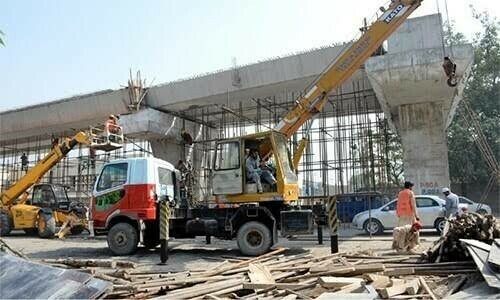
Cricket commentary on radio and TV was always done in the English language in Pakistan until 43 years ago when the airwaves carried a new voice treating listeners and viewers to cricket commentary in Urdu. The voice behind the microphone may have sounded alien initially but it wasn’t long before Munir Hussain became a household name among the lovers of the gentlemen’s sport here.
“We used to hear hockey and football match commentary in Urdu but for cricket the commentary was always done in English. Still I took the idea of doing cricket commentary in our national language to the then General Manager PTV Aslam Azhar who along with his producers, including brothers Athar Viqar Azeem and Akhtar Waqar Azeem, decided to take my test,” remembers the pioneer. “I had been practicing for it for a long time but they rejected me initially, though later Aslam Azhar thought about giving it a try anyway.”
Being a former domestic cricketer himself helped in a big way. “As an all-rounder who opened for his side as a fast bowler and batted in the lower order, I had played quite a bit of club and domestic cricket, including captaining the Kalat Division team during a Quaid-i-Azam Trophy edition in my heyday. So being familiar with the fine technicalities of the game, I think I was the best person for the job,” he adds.
“And even though our English commentators were completely opposed to the idea of Urdu commentary in the beginning, saying that cricket was an English game and hence commentary for it should also be in the English language, the experiment was initiated on radio and TV during the four-day Jang Gold Cup final between Clifton Gymkhana and National Sports played at the Youth Centre, Nazimabad, back in 1969.
“It was an important match with 13 Test players playing in the final,” Munir Hussain continues, “the ground, too, had around 25,000 spectators on the day. I spoke on TV for 15 minutes and then after handing the microphone over to my English-speaking colleague went into the other booth to commentate in Urdu for radio for the next 15 minutes, and the exercise continued throughout the match. That was just the beginning.”

Several years later, Pakistan’s former president General Ziaul Haq, patron of the Pakistan Cricket Board (PCB) and a big fan of Munir Hussain, issued orders to give equal time as English commentary to Urdu commentary on both radio and TV.
Urdu commentary picked up in a big way from there on. Munir Hussain is the founder but today there are so many other big names known for their individual styles in Urdu commentary. “Yes, there is Hasan Jalil, Mohammad Idrees, Mirza Iqbal Beg, etc., and all are doing great in the field,” says the veteran.
About his own style, he says, “Converting English terms to Urdu was a bit of a problem in the beginning. There were things such as a bouncer which I continued to call a ‘bouncer’ even though other commentators today have found an alternative for it in ‘uchhalti hui gaind’. But I felt I shouldn’t be messing around with the technical words.”
Pakistan and Munir Hussain were first in introducing cricket commentary in a language other than English in the subcontinent. Hindi commentary in India started later. “But they are ahead of us in introducing commentary in Punjabi, Gujarati and other regional languages, too, while we only do it in English and Urdu here,” Munir Hussain points out.
Urdu commentary gave Munir Hussain a new identity and bigger scope. Apart from serving as president of Karachi City Cricket Association (KCCA), he also launched his very popular Urdu cricket magazine Akhbar-i-Watan some 35 years ago along with building lasting friendships with many of our cricket stars. “I call Imran Khan my kid. He is a good friend of mine as are Hanif Mohammad, Moin Khan and Abdul Razzak. Cricket commentary took me from country to country and I would often pen a travelogue of my trip following a tour. This way I have written seven books including one about the 1992 World Cup that Pakistan won,” he informs.
Over time his work also earned him accolades such as PTV’s Best Urdu Commentator of the Decade Award (1985-95) and their Regional award from Karachi Television Centre, the Lifetime Achievement Award from Pakistan Broadcasting Corporation, PCB’s World Cup Legends Award presented on the 10th anniversary celebrations of Pakistan’s victory in the 1992 World Cup, etc. But what he really values was a colleague’s praise for him. “I still cherish what the seasoned Omar Kureishi said to me live on air once,” says Munir Hussain. “It was during a Test with New Zealand when their last two batsmen were at the crease that the umpire announced tea. That was when Omar Kureishi passed the microphone over to me saying that ‘…and Munir Hussain will take you through the game after tea.’ That’s when I pointed out that the batsmen have the option to forego the 20 mandatory overs after tea on the last day and I believed that the match was over as it was going nowhere anyway. To that Omar laughed and acknowledged my fine knowledge of the game, and that, too, live on air,” he remembers with pride.
Today preferring to lead a quiet life away from the commentary booth, although he does lend his expert opinion during matches sometimes, Munir Hussain is happy to see so many new faces and voices doing Urdu cricket commentary. “I have restricted myself to appear as an expert only as I thought it better to step aside and make way for fresh blood in this field now,” he says.
About what he thinks of the newcomers, he says, “Some are really good but I cannot help but notice a kind of intolerance and selfishness or shall I say too much ego in many of the others. For instance they would commentate and also provide the expert opinions themselves. Now there is a difference between a commentator and an expert, which they need to understand. The microphone, after they have announced the score and who is batting, bowling, etc., needs to be passed on to the expert to discuss players’ performances or game strategies. But they don’t really seem to like giving others a chance. Still I wish them all the best of luck!”














































Dear visitor, the comments section is undergoing an overhaul and will return soon.